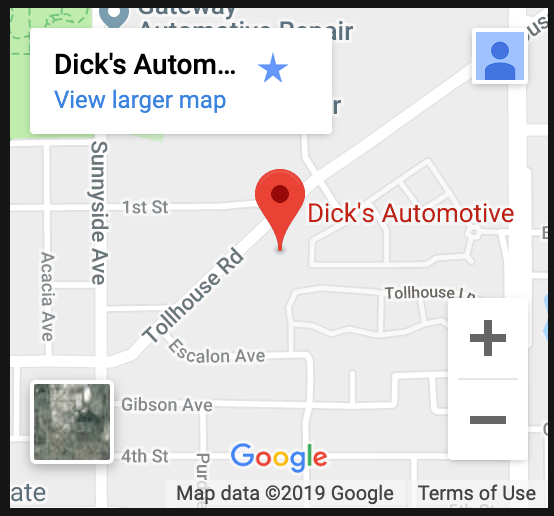Have you ever heard a strange knocking or pinging noise coming from your engine? This could be a sign of engine detonation, a condition that can seriously damage your engine if not addressed promptly. Engine detonation, also known as “knock” or “ping,” occurs when the air-fuel mixture inside your engine’s cylinders ignites at the wrong time, causing an uneven explosion. This can lead to a variety of engine problems, ranging from decreased performance to severe engine damage.
Engine detonation happens when the air-fuel mixture ignites prematurely, causing a damaging shockwave inside your engine’s cylinders. If left untreated, detonation can cause damage to key engine components like the pistons, cylinders, and valves. This not only reduces your vehicle’s performance but can lead to expensive repairs or even a complete engine rebuild.
In this blog, we’ll explain what causes engine detonation, how to recognize the warning signs, and why it’s so harmful to your vehicle. If you’re experiencing engine knocking or have concerns about your engine’s health, it’s essential to schedule an inspection with Dick’s Automotive right away: https://dicksautomotiveinc.com/appointments/.
What Causes Engine Detonation?
Engine detonation is typically caused by an imbalance in the air-fuel mixture or timing within the combustion chamber. Normally, the air-fuel mixture is ignited by the spark plug at the right time, ensuring a controlled and efficient combustion process. However, when detonation occurs, the fuel may ignite too early or in multiple areas, creating shockwaves that damage engine components.
Several factors can contribute to engine detonation:
- Low-Octane Fuel: Using fuel with a lower octane rating than recommended for your vehicle can lead to premature ignition of the air-fuel mixture.
- Excessive Heat: If your engine is running hotter than normal, it increases the chances of detonation due to the high temperatures in the combustion chamber.
- Incorrect Spark Timing: Faulty spark plugs or incorrect ignition timing can cause the air-fuel mixture to ignite at the wrong moment.
- Carbon Buildup: Over time, carbon deposits can accumulate in your engine, leading to increased pressure and heat, which may trigger detonation.
At Dick’s Automotive, we always recommend using the correct fuel grade and scheduling regular maintenance to prevent issues like carbon buildup and overheating, which can lead to detonation. Our ASE-Certified technicians can help you maintain optimal engine performance and avoid costly repairs.
Why Is Engine Detonation Harmful?
Engine detonation is more than just an annoying sound—it can be extremely harmful to your engine. When detonation occurs, the uneven combustion creates powerful shockwaves that can damage engine components. This abnormal combustion puts additional stress on the pistons, cylinders, and valves, which are designed to withstand controlled explosions, not the chaotic force of detonation.
The repeated shock from detonation can lead to several serious issues, including:
- Piston Damage: The intense pressure can cause the pistons to crack or develop holes, reducing compression and leading to engine failure.
- Cylinder Wall Damage: Over time, detonation can wear down the cylinder walls, causing scoring or cracks that will require costly repairs.
- Valve Damage: The shockwaves from detonation can damage the valves, preventing them from sealing properly and reducing engine efficiency.
- Decreased Performance: Even minor detonation can result in decreased engine power and fuel efficiency, making your car less responsive and more costly to operate.
At Dick’s Automotive, we understand the importance of keeping your engine in top shape. If you’re experiencing any signs of detonation, it’s crucial to have your vehicle inspected as soon as possible to avoid severe damage and ensure your engine’s longevity.
How Can I Prevent Engine Detonation?
Preventing engine detonation starts with regular maintenance and paying attention to your vehicle’s performance. Here are some steps you can take to reduce the risk of detonation:
- Use the Correct Fuel: Always use the fuel grade recommended by your vehicle manufacturer. Higher-octane fuels are less likely to ignite prematurely, helping to prevent detonation.
- Keep Your Engine Cool: Regularly check your cooling system and engine temperature to avoid overheating. If your engine is running hot, it increases the chances of detonation.
- Maintain Spark Plugs and Timing: Ensure your spark plugs are in good condition and that your ignition timing is correctly set. Worn or improperly gapped spark plugs can lead to misfires and detonation.
- Clean Carbon Deposits: Regularly cleaning carbon buildup from your engine can prevent pressure and heat from increasing to dangerous levels.
By following these preventative measures, you can help keep your engine running smoothly and avoid the costly damage caused by detonation. At Dick’s Automotive, we provide comprehensive engine diagnostics and maintenance services to help keep your vehicle performing at its best.
Conclusion: Protect Your Engine with Regular Maintenance at Dick’s Automotive
Engine detonation is a serious issue that can lead to costly repairs and decreased vehicle performance if not addressed. By using the right fuel, maintaining your cooling system, and staying on top of regular engine maintenance, you can prevent detonation and protect your engine. If you’re experiencing signs of engine detonation or want to ensure your vehicle is in top shape, schedule an appointment with Dick’s Automotive in Clovis today. Our ASE-Certified technicians are here to keep your engine running safely and efficiently: https://dicksautomotiveinc.com/appointments/.


